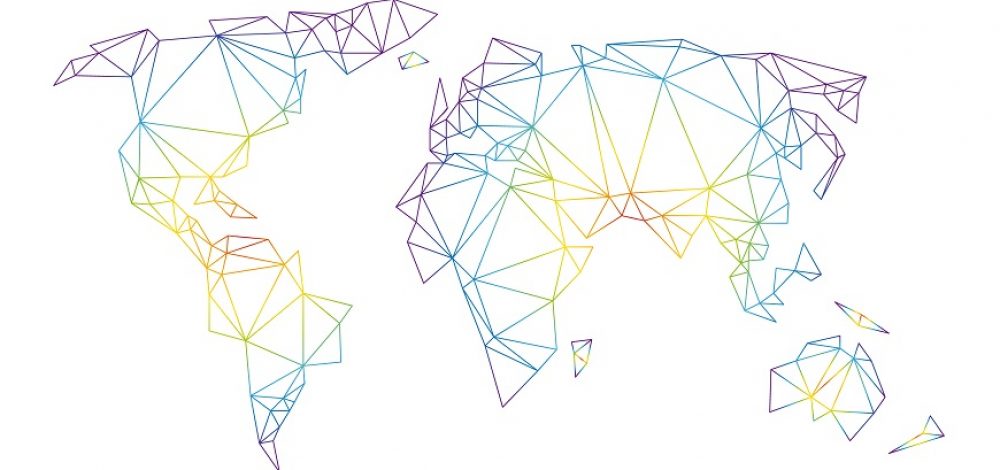Session theme: National strategies in internationalisation
Christopher Tremewan
Thank you, Mr Chairman. It’s a pleasure to be here amongst leaders from one of the great university systems of the world – and I hope it remains so for a little while longer. I represent an alliance of 50 research universities from 17 APEC countries around the Pacific Rim: the leading universities of China, Japan, Korea, Southeast Asia, the West Coast of the USA and Canada, Mexico and Chile, Australia and New Zealand.
I see today’s theme of ‘a shifting global environment’ as not only referring to changes in international education but also to the literal meaning of the changing global environment and the threat to human survival. As an international organization, I see this session’s theme of government internationalization policies raising the broad question of effective international partnerships with multilateral bodies, business, government and international NGOs on common challenges.
In these respects, the UK and we in the Asia-Pacific have two questions in common:
• What is the upgrade in internationalization strategies required to address current challenges?
• Secondly, with this objective, what should be measured?
The presidents of Berkeley, Caltech, UCLA, and USC established the Association of Pacific Rim Universities in 1997. They saw the economic integration of the Pacific Rim, the investment in national systems in China and elsewhere, and the need for universities to offer policy advice to governments and business.
Much has changed since 1997, in the geopolitics of international relations as well as of higher education. Critical challenges faced by our societies have intensified. Universities are under pressure to play their part in finding solutions.
Just to remind you, the APEC region constitutes:
- 40% of the world’s population
- 60% of global GDP
- 47% of global trade
It is also highly diverse in terms of Culture, language, religion, physical environment, political systems, GDP per capita, life expectancy, age demography.
Our societies share the Pacific Ocean which is about half of the earth’s surface. We share the Pacific ‘Ring of Fire’ and so our societies dominate global geophysical disasters in terms of exposed populations and infrastructure. Cities on the Pacific Rim are disproportionately vulnerable to sea level rise and other climate change impacts.
It is obvious that these challenges are too great and too complex for any country to solve alone.
As a network representing a significant proportion of the research, education and innovation capabilities of the APEC economies, our Association is now uniquely positioned. Our utility as a platform for cooperation in a vast, diverse region is increasingly called upon.
We focus on leveraging the collective capabilities of our members into the international public policy process in areas such as:
- Disaster risk reduction
- Global health
- Population aging
- Sustainable cities and landscapes
- Asia-Pacific women in leadership
- Artificial intelligence, its social implications and the future of work
- Sustaining the Pacific Ocean
We partner with APEC and its 21 member governments in several of these areas, bringing university leaders into the engine rooms of Asia-Pacific policy formation; we produce policy papers in areas from AI and labour mobility to ocean science or technology and aging; other partners range from Google and Elsevier to the UNDP and the Asian Development Bank. We partner with The New York Times to engage students in public policy case competitions on global challenges. We are jointly developing a data science education strategy across the region.
We use our unique geographical reach across the Americas, Asia, and Australasia to bring together thought leaders, researchers, and policy-makers to collaborate on effective solutions to 21st century challenges.
This is the network effect of an international alliance that moves from a passive and internal focus to a strategy of actively creating platforms for engagement:
- contributing to solutions to global challenges,
- developing our network’s capacity as a think-tank,
- raising our members’ visibility,
- building international influence, and
- providing opportunities for faculty and students to engage internationally on the big issues of our time.
Now my second question: what should we measure?
One of our members, KAIST in Korea, is hosting next year a new THE ranking on innovation. This is most welcome.
To respond to the world as it now is, internationalization in higher education must build on the basics of cultural exchange, student mobility and recruitment, and research collaboration. It must aggregate at scale the social power of knowledge and innovation in new and more egalitarian ways.
Our members have over 2 million students. How do we mobilize them internationally to collaborate on 21st century challenges? What new models can we create? How do we measure success?
Secondly, how do we create measures that shift the public perception of the value of higher education and research from competitive self-interest to the global common good? Should we count how many graduates commit to public service or international NGO work as a key measure of internationalization?
How is the urgent need for data science literacy across many disciplines and professions being coupled with the knowledge of history, language and ethics in different societies?
How well do universities protect the autonomy of their faculty and students from commercial and political pressures in international collaborations?
How well do business schools generate economic models to advance the UN Sustainable Development Goals?
What partnerships do universities have with international organisations to promote solutions to climate change and environmental crises?
These measures speak to the kind of world we want to create and sustain.
As institutions which span across generations and shape society, it is incumbent upon us to re-define internationalization in terms of the global common good.

